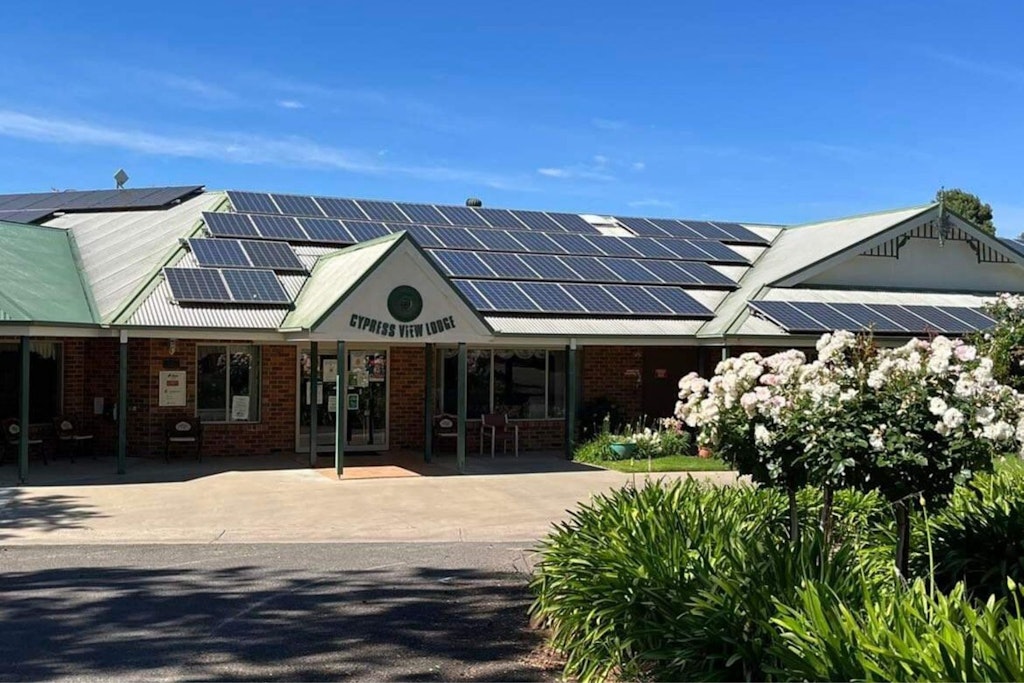RN exemptions may not help small providers face mounting pressure
Published on 19 April 2023

Regional aged care operators facing mounting pressure due to Government mandates may be closer than ever to closure, and even a 12-month Registered Nurse exemption might not save them.
Residential aged care providers Wesley Mission, Brightwater and Blue Care have all announced impending facility closures with 200 Wesley Mission residents staring at the stark reality that they’ll be in new homes by June.
More closures are expected, too. For Cypress View Lodge Facility Manager, Karen Hodgson, it might not happen at all, but she said there is every chance that Government mandates will contribute to the loss of a valuable community resource.
“We provide a little home that has all the food cooked on-site, we do individual laundry, and each resident has their own room and bathroom. Our residents get excellent care,” she said.
“It’s just a beautiful little facility that’s a home and we’ve never had an issue with accreditation. Why is our future now at risk because of these arbitrary targets?
“It’s not actually about care anymore, it’s just about these targets.”
For the best part of two years, Ms Hodgson has experienced an all-too-familiar challenge in the sector; recruiting Registered Nurses (RNs). She’s worked hard to bring an RN to Coleambally, a town of 800 people 420 kilometres west of Canberra.
Those efforts have been unsuccessful, meaning she will have to apply for a Government exemption ahead of the July 1 deadline for having RNs rostered 24/7.
Yet she is steadfast in the belief that her 19 residents have not been left wanting. Nurses are rostered on, supporting residents, but the 24/7 mandate means that’s no longer enough.
“In order for me, as a 19-bed to staff 24-hour registered nurses, I would need at least another four Registered Nurses,” Ms Hodgson said.
“We’re already running at a loss like most facilities around Australia but my funding doesn’t change if I was to miraculously find those four nurses.
“It’s not that I don’t want an RN, but the use of that absolutely vital resource here at my 19-bed facility is not a good use of that resource.
“We provide nurses during the day, either on staff or through an agency, and we have got a registered nurse on call 24 hours a day. But in terms of 24-hour support, my residents just don’t need that.”
Roughly 5% of aged care facilities have been granted a 12-month exemption from the 24/7 RN requirement, but there are concerns those exemptions are not widespread enough and they may not provide the support facilities need.
Ms Hodgson expressed her own concerns that applicants have no assurance of approval, while there’s no quickfire solution to bringing in experienced RNs when aged care providers are already competing with hospitals for staff.
“I’m genuinely concerned about our future. If we get the 12-month exemption that only gives 12 months and you can’t train a Registered Nurse in 12 months,” she said.
“It’s not like I can put my own staff through that.
“The Government’s completely forgotten about Enrolled Nurses (ENs) and the vital role they play in aged care and that’s just getting swept under the carpet.
“I can train my staff a lot quicker to be an EN and an aged care worker with 15 years of experience as an EN is far more valuable to my residents than a first-year graduate RN.
“It’s just they have so much experience in aged care that is absolutely vital to wound care, caring for my residents, and providing direct personal care than a registered nurse right out of university.”
Prime Minister Anthony Albanese has defended the Government’s position, stating they make no apologies for being ambitious, citing the benefits of the 15% award wage increase as a practical solution to attracting workers.
They’re also working on providing the sector with new research on the best models of care. Ms Hodgson labelled those studies “frustrating” as her facility already has a working model of care and they would benefit more by reallocating funding that’s going to universities.
In addition, the ramifications of facility closure only put more pressure on existing providers. Brightwater said it will internally rehome and reallocate its residents and staff, but Wesley Mission has displaced 200 residents and countless staff.
Ms Hodgson said it would be heartbreaking to see staff and residents forced to leave a small town like Coleambally where the nearest facility is over an hour away.
She hopes there is more support offered than just exemptions over the coming months, with providers who are doing the right thing being supported and allowed to do just that, rather than having to meet unnecessary standards.
“The very small number of organisations out there not providing great care need to be dealt with but again everyone’s tarred with that same brush because of those few little things,” she said.
“Our residents are hugely important and they need to be treated – well spoiled – and they deserve it.
“We’ve got a sign up in our staff room that says we work in their home. This is not our workplace, this is their home and we work in their home.
“Myself and our staff are expected to treat the residents that way and we can do that in a small facility where residents get so much personal care and get to know the staff so we become part of their family.
“That should be highlighted as a great thing.”